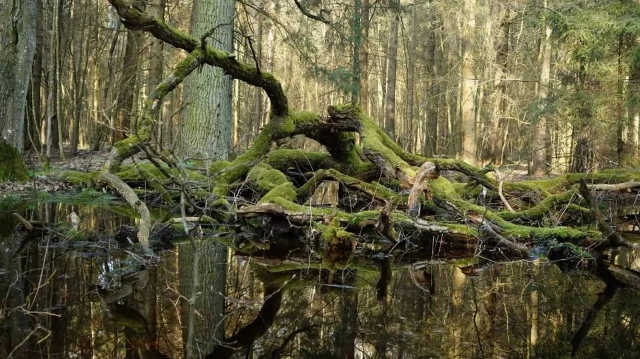
Hundreds of tree trunks, branches are found preserved in wet soil
Archaeologists have uncovered a primeval forest with trees dating back up to 6,000 years during excavation work in the northern Dutch province of Friesland, public broadcaster NOS reported on Monday.
The discovery was made near the village of Oudega in the municipality of Smallingerland, where a new lake is being excavated. During the work, hundreds of tree trunks and branches were found preserved in wet soil.
Researchers from the Cultural Heritage Agency of the Netherlands analyzed slices of the wood in a laboratory. By studying the annual rings, they were able to accurately determine the age of the trees.
"One of the trees dates back to 3729 BC," researcher Jos Bazelmans told regional daily Omrop Fryslan. He added that the trees were preserved over millennia because they lay in waterlogged soil later covered by peat.
Bazelmans said that it is rare to discover a primeval forest of this scale. The forest covers around 90 hectares (222 acres) and appears to have remained largely untouched by humans, providing valuable insights into natural landscapes thousands of years ago.
So far, around one-sixth of the trees have been excavated, according to the report. The Dutch National Forest Service plans to continue the research in the coming years.
"We expect to be able to sample perhaps more than a thousand trees in two to three years," Bazelmans added.







